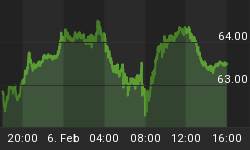The weekend after Thanksgiving is often associated with holiday shopping, spending sprees, and an influx of cash into the economy. In fact, consumers are often applauded for spending money and "stimulating" the economy. More often than not, Wall Street pundits will look at consumer spending during this holiday season to gauge how our economy is fairing. This season is no different. According to a recent survey by the National Retail Federation, after Thanksgiving sales are up 22% from last year. It is projected that the average person will spend $738.11 this holiday season. As a result, Wall Street seems to think that our economy is getting stronger. In addition, they quickly point out that the money they spend will provide the additional stimulus to propel continual economic growth. What these pundits fail to realize, however, is that most Americans are not spending money from their savings; rather, they are spending borrowed money (whether they are tapping into credit cards or their home equity). Consequently, this irrational consumer spending serves more as a temporal form of "shock therapy", rather than as a true economic stimulus.
Learning From My Dad
Growing up, my dad would often state, "Money does not grow on trees". As he uttered the phrase, he would hope to make a point about the value of money. Specifically, he would make that statement when I wanted something that was out of my means, or when I would foolishly spend my money. Because of this, I was able to grasp the idea of savings. Even at an early age, I understood that the accumulation of wealth was not defined by how many toys I could buy, but by how much money I could save.
Unfortunately, most Americans have not grasped this simple truth as is clearly demonstrated by the after Thanksgiving spending. Even more unfortunate, is that our own government is modeling the idea that it is ok to spend money and to go into debt. From our continual record trade deficits to Alan Greenspan's encouragement of Adjustable Rate Mortgages, it seems that the concept of saving is no longer encouraged. Statistically, the personal savings rate has declined substantially over the last several years. In fact, as the chart below shows, we now have a negative savings rate!

How can the average American spend $738.11 this holiday season, when the average American has no savings? The numbers just don't add up. As I stated earlier, consumers are most likely tapping into their home equity or charging expenses to their credit cards. Although this might serve as a short term stimulus for the economy, it will ultimately put consumers further into debt.
Why Gold is a must in this Economic Environment
I am more and more convinced that Gold is the best way to survive in this economic environment. Why would anyone put their wealth in anything else? The Real Estate market is overvalued, the stock market has been pushed up by artificial consumer spending, and the purchasing power of the dollar (via cash) is steadily decreasing. The smartest thing to do is to position your wealth towards Gold. It is mined, traded, and used as currency worldwide. Gold is an international phenomenon. It always has been. From biblical times to present day, people have always flocked towards Gold as a means of stability and a chaotic economic environment. Are we headed towards a chaotic economic environment? Most likely. When I look at the record trade deficit, the overvalued real estate market, the negative savings rate, and the inevitable rise of interest rates, I can only imagine what will happen. The time to protect your wealth is now.
In my last article, I stated that Gold's pull back to $460 would likely propel it to $500 by the end of the year. Since then, Gold futures had a strong rally and are currently at $497. I still see it heading higher. From a technical perspective, Gold futures have had one of the best long term trends in the last several years. If you take the inflation adjusted price of Gold, this chart looks even better.

In 1980, Gold futures hit an all time high of $850/ounce. However, what could you buy with $850 in 1980? A lot more. So if you take the inflation adjusted all time high for Gold ($2,158), Gold is still extremely cheap! Going forward, I see Gold breaking through this $500 psychological barrier and having a relatively quick move to $600 before the end of 2006. This Gold bull market definitely has legs! I am offering a free report on Gold Futures to anyone who asks. You can request one by clicking here: http://www.wisdomfinancialinc.com/brokers/emanuel.html.















